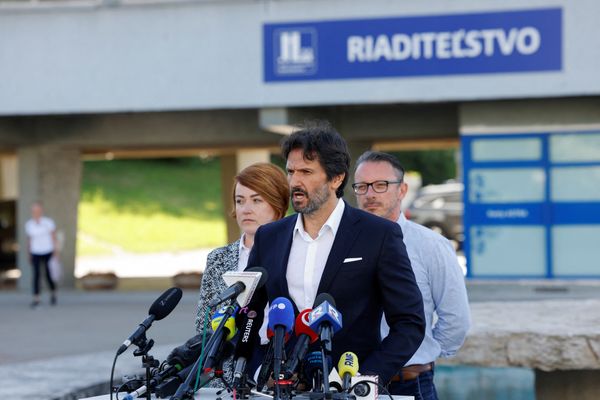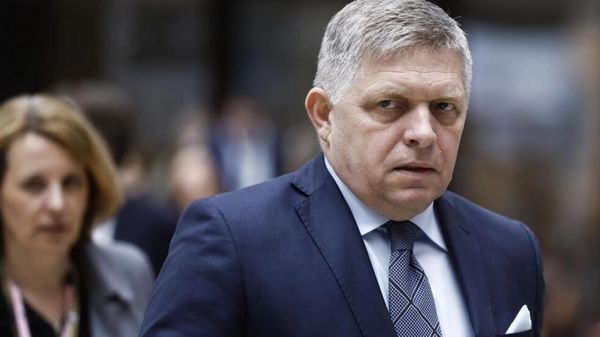
Send her victorious, happy and glorious — but increasingly… impecunious? The death of the queen offers a glimpse of the royal fortune — a rather more meagre thing than the fuss might imply.
On the death of his mother, King Charles III inherited her personal fortune. It amounted to £437 million, (A$746 million), according to Forbes estimates. Not even enough to make the BRW young rich list’s top five. And she was hardly young.
The queen of England and Australia was hardly poor, but when we see billionaires in the media so frequently, and consider the house and the staff and the reverence afforded to her, the estimate of her personal wealth seems curiously modest.
Her personal fortune would just have been enough to get her into the top 200 of the BRW Rich List. She’d have been sandwiched between two businessmen you’ve never heard of: a miner called Brian Flannery and a property developer named Nick DiMauro. (Other parts of what is known as The Firm seem to be doing better, with the new king reportedly worth an estimated £900 million pounds, or A$1.53 billion).
Why we care
This is, you could argue, a good news story. When the UK’s Sunday Times first launched its rich list in 1989, Queen Elizabeth II was on top. The list included a further 11 dukes, half a dozen marquises, 14 earls and no fewer than nine viscounts. But in the past 33 years, times have changed. The queen dropped out of the top 300 back in 2015 and is now not even in the mix.
Instead the top position is held by Sri Hinduja, a Pakistan-born Briton who lives just down the Mall from the queen. The good thing about his rise to the top? He had to do something to achieve it. Hinduja was born into money, yes. But not royal-level money. His job was not just being himself. He grew rich by running businesses that offered things people wanted — cars, petrol, banking, etc.
This is the pact of capitalism. You can get wealthy beyond your wildest dreams. Richer than kings. But you do it by serving the public, not ruling them.
Second on the UK 2022 rich list, with a fortune of £23 billion (A$39 billion) is James Dyson, vacuum cleaner guy. If you’ve ever upgraded to a Dyson, you can appreciate why he got rich. The vacuums cost a ridiculous amount but they’re a lot better than the alternatives.
Dyson could buy and sell King Charles III, and it’s not because his mother sat on a throne for seven decades (his mum was a dressmaker and teacher and raised four kids after her husband died). It’s because he tried and discarded 5127 prototypes before he figured out the right design for his “cyclonic” vacuum design.
This is not a defence of the details of our capitalist system. Recent years have been a gilded age for the accumulation of wealth. Much could be changed while preserving the incentives that matter.
It is a defence, however, of the big idea. The idea that to get rich these days you should offer something to the people, not take it from them, that fortunes can be created not taken.
Why do we need rich people at all?
There will always exist charismatic psychopaths with a lust for power. In our current system those people are motivated to assemble an army of young men to work in warehouses, not a literal army intended to surge over the border and claim land. If Elon Musk’s Napoleonic complex and capacity to inspire devotion makes him a bothersome capitalist, imagine how painful he would be as a warlord.
Magna Carta and all that
The diminution of the queen’s relative wealth is not just about the rise of capitalists. It’s also about the rise of the democratic state. Her personal fortune does not include Buckingham Palace, Windsor Castle or Balmoral Castle. Why? Each is part of the Crown estate, and those are technically the possessions of the royal family but in practical terms not.
The Crown estate is a funny, hybrid kind of private property. Since the era of George III the king retains nominal ownership of his house, but he doesn’t have the right to sell it, and most of the rents from it accrue to the civil government. The Crown jewels and royal art collection aren’t part of the Crown estate. Nevertheless they are also excluded from estimates of the personal wealth of the monarch because they are deemed to belong to the Crown not the person wearing it. They belong to the UK.
This is another reason to celebrate the decline of the queen’s wealth. A strong democratic state can take on vested interests, tax private property or limit how property is used in other ways. People are powerful and through a democratic state we channel that power effectively.
Nevertheless, the Queen’s personal fortune is exempt from inheritance taxes, which in the UK usually apply at 40 per cent above £325,000. That’s one way in which the crown still holds some privileges over the state. In 1993, then prime minister John Major made a tax agreement with the royal family that increased their liability for income tax while exempting them from inheritance tax. The risk of inheritance tax was “the assets of the monarchy being salami-sliced away by capital taxation through generations, thus changing the nature of the institution in a way that few people in this country would welcome,” Major told Parliament at the time.
When we look at less democratic states such as Russia, we see people can’t channel power effectively, the president is the richest person in the country, and starting imperial, expansionist wars is the last frontier for a person who craves more power and money but is unchecked domestically.
The Soviets learnt that a country without capitalism isn’t good. Capitalism without democracy is a frightening idea too. You need both, and together they can be more powerful than a revolution.
In a democracy with carefully managed capitalism, you don’t even need to overthrow your royals. You can just slowly make them fade to irrelevance.
Poor King Charles. Do you think he’ll cope? Let us know by writing to letters@crikey.com.au. Please include your full name to be considered for publication. We reserve the right to edit for length and clarity.







